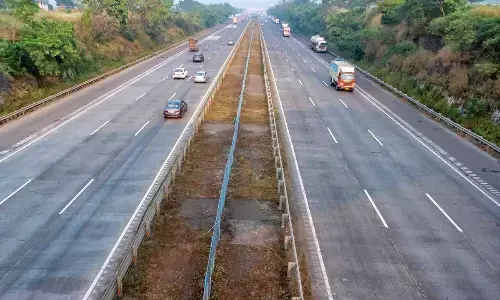MyVoice: Views of our readers 11th December 2020

MyVoice: Views of our readers 9th January 2021
Whenever schools reopen In India, of course, wearing masks will be mandatory, strict hand hygiene routine will have to be followed, and students will be asked to sit six feet apart in classrooms
Schools should ensure safety of students
Whenever schools reopen In India, of course, wearing masks will be mandatory, strict hand hygiene routine will have to be followed, and students will be asked to sit six feet apart in classrooms. Yet, the apprehension over reopening of schools is natural considering whenever the day will come when staff, parents and children congregate at the school gates, the school has to ensure they are entirely prepared. From a health and safety perspective, this is the time when there needs to be very stringent legislation or standards for schools in terms of Covid-19 safety. In fact, compliance has never been more important. It is essential that schools take all "reasonably practicable" steps to ensure the premises are safe before they are ready to welcome students and staff members back. The crucial hinge in any health and safety management system is risk assessment, and the management of Covid-19 is no exception.
Now is the time for schools to dedicate resources towards a rapid risk-assessment framework along with a comprehensive plan to identify and determine appropriate control measures to help mitigate issues arising from Covid-19.This whole procedure of maintaining safety policies, procedures, and protocols is bound to require an immense amount of commitment. A risk assessment is not about creating reams of paperwork, but rather about identifying sensible measures to control the risks, and the role of others in supporting that. The risk assessment will help school authorities to decide whether they have done everything they need to. Schools now have to balance the educational, social and emotional needs of their students along with the health and safety of students as well as staff in the midst of the pandemic.
Harshavardhan Rao, Nalgonda
Poor turnout in GHMC polls unfortunate
It is unfortunate that only 45 percent votes were polled, and 55 percent absconded from voting in the recently held GHMC elections. Still our politicians do not shy away from proudly claiming their supremacy in terms of growth rate of their seats, etc but not speak of the poor turn-out in Old City of Hyderabad. It is a matter of grave concern how long a handful of people continue to rule the roost and turn decisive in choosing their choicest governance; and how long the majority continues to abscond from exercising their constitutional obligation of voting, paving way to the hard-core criminals to govern us.
It is, at a time when the country is passing through difficult times and utter chaos prevalent due to various incriminating factors and bad governance. Don't they have any responsibility towards their own family, the society and the nation as a whole? Or, do they think that they will not be affected come what may? Then, it is their misconception. Excuses like continuous three days holidays enabled them to drive out of the city, fear of corona pandemic, or the questions like, what difference does it make if I vote or evade from voting won't do, they are invalid and absurd.
The other day, we witnessed heavy traffic on the roads. Is this the importance the majority give to their voting right? The more astonishing is that quite often the illiterates from remote areas fare well than the educated living in the city, in exercising their franchise (in terms of polling percentage). Then who is to blame for the present scenario and the state of affairs in the country? Those who govern us? or those who let them govern and rule us? Think.
Shaik Ismail, Rajendranagar, Hyderabad
Farm laws should be repealed
The Central government's effort to portray newly passed agriculture laws as empowering the farmers have failed not because of any fault of the public relations campaigns but because of the inherent content of these laws. There are limits to PR efforts in converting something to just the opposite of what it is. The spread of mass literacy in India and the development of multiple forms of mass media have certainly enabled a very large section of the Indian population to differentiate between truth and falsehood presented as truth. This deserves to be celebrated as deepening of democracy in Indian institutions and practices. Effective and truthful communication between the government and the farmers' representatives is central to strengthening the process of understanding the merits of the farmers' plea that all the three farm laws should be repealed. The farmers' argument that the mere provision of MSP and APMC public procurement is not acceptable is based on a slowly emerging iterative and mature understanding that these two issues cannot be delinked from the other key features of the interconnected web of the farm laws.
Meghna S, Habsiguda, Secunderabad











